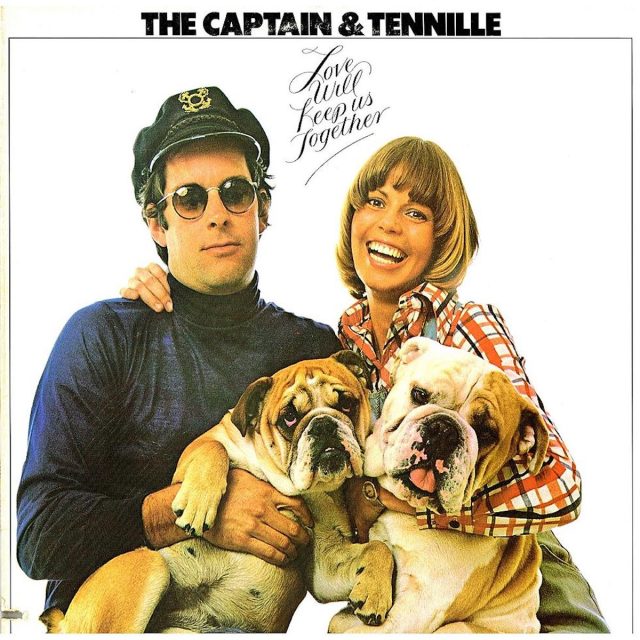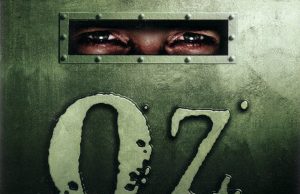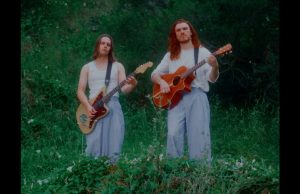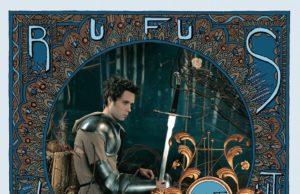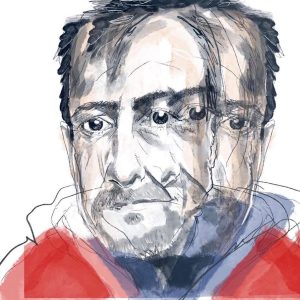 When we were little boys in elementary school, a few of us decided to become “captain” superheroes for our recess adventures. One of my friends — I don’t remember which — was Captain Courageous. Another, Chris, was Captain Chaos — named after Dom DeLuise‘s character in Cannonball Run. But me? Captain Cookie. I got this moniker because my mom always packed a generous number of homemade chocolate chip or peanut butter cookies in my lunch. She was an awesome baker, and the cookies were very popular among my friends. I embraced the title.
When we were little boys in elementary school, a few of us decided to become “captain” superheroes for our recess adventures. One of my friends — I don’t remember which — was Captain Courageous. Another, Chris, was Captain Chaos — named after Dom DeLuise‘s character in Cannonball Run. But me? Captain Cookie. I got this moniker because my mom always packed a generous number of homemade chocolate chip or peanut butter cookies in my lunch. She was an awesome baker, and the cookies were very popular among my friends. I embraced the title.
Being a kid in the late ’70s through the mid-’80s, so-called captains were everywhere — not just on TV and the silver screen, but also on the radio.It might be one of the most popular stage name prefixes. There are hundreds to be found on Discogs, so I thought I’d go through a few of the more notable ones.
In my own collection I appear to have several. Elton John’s Captain Fantastic and the Brown Dirt Cowboy, of course. But not the awful 2006 followup The Captain and the Kid. I own a nice copy of the debut album by Captain Beyond, featuring its cool lenticular 3D cover. Oh, I also have the debut solo album by The Damned’s Captain Sensible, Raymond Ian Burns. And I have heaps of Captain Beefheart, aka the late Don Van Vliet. Van Vliet came up with the name with Frank Zappa, and he disliked being asked about it. He once claimed the name came courtesy of his uncle who referred to his penis as a “big beauty” and a “fine beef heart.” But Van Vliet also told David Letterman the name symbolized “a beef in my heart against this society.” He was awesome beyond compare:
For many, the first one which may come to mind is The Captain from The Captain & Tennille. Daryl Dragon got the title from Mike Love during his time performing with The Beach Boys from 1967 to 1972. Love dubbed Dragon Captain Keyboard, which he embraced and began wearing the iconic captain’s hat to go along with it. Dragon met Tennille at an audition in the early 1970s and he later recommended her to The Beach Boys when they needed a second keyboard player. The pair eventually began performing together and had their first big hit with Neil Sedaka’s Love Will Keep Us Together in 1975. In November of that year they were married. The pair divorced in 2014, which came as a surprise to Dragon. But when he passed away in 2019 of kidney failure, Tennille was by his side.
Incidentally, Dragon’s other trademark — the dark sunglasses — wasn’t to appear cool or mysterious. Rather, he had megalocornea, which is a rare condition in which the cornea has an enlarged diameter. In other words, he had really big eyes.
If you haven’t heard Captain Beyond, and you love Deep Purple, do yourself a favour. The space-rock supergroup was made up of Johnny Winter’s drummer, two members of Iron Butterfly and the former Deep Purple lead vocalist Rod Evans (Hush). They made three albums in the ’70s. The first one, a self-titled set from 1972, is the best. Behold:
Like Elton John, many musicians have albums with “captain” names, rather than it being their own stage name. A more modern example in my own collection is the 2001 Stereolab EP Captain Easychord. But there’s also 1973’s The Captain And Me by The Doobie Brothers. Huge album — it has both Long Train Runnin’ and China Grove on it.
In 2003, Pearl Jam issued the song Love Boat Captain as a single. No word on whether Gavin MacLeod got any royalties. The real Love Boat captain passed away in May 2021 at age 90.
Jazz fusion guitarist Lee Ritenour called his third album Captain Fingers. It’s loaded with big name musicians like the Pocaro brothers, Zappa alumni Ian Underwood, Ghostbusters songwriter Ray Parker Jr., composer Dave Grusin and Canada’s David Foster. Big names, but the song titles are even better — Space Glide, Dolphin Dreams and Margarita. It doesn’t get much more contemporary 1977 than that.
Joe Cocker called his 1976 live album Space Captain, named for the song of the same name from 1970 which first appeared on the re-issued live album Mad Dogs and Englishmen:
I’m a little surprised there aren’t more captains named after the type of music they do. There are a few — DJ Ronnie Green was a hip-hop pioneer in the early ’80s who performed as Captain Rock. He went on to become an NCAA basketball referee. He didn’t play rock, so perhaps he was just “not soft.” Legend has it he once stripped down to a thong for a live performance, so.
Likewise, Captain Funk is not what you might consider a funk artist. He’s Tatsuya Oe, a New York-based Japanese electronic, dance, rock, pop, and dramatic score composer. Following the same pattern, Captain Soul not only doesn’t do soul music, but it’s a group rather than a person. Captain Soul — also the name of a Byrds song — were a U.K. jangle-pop group who once appeared on a Teenage Fanclub tribute compilation.
Captain Comatose is a little misleading as well. They’re a duo, and they make electronic house music.
I’m not sure Captain Crucial lives up to his name. Born Amos Pizzey, the English businessman began singing at age 13. By 14 he was appearing on songs by Culture Club. He went on to remix stuff by Madonna, George Michael and Red Hot Chili Peppers.
Long before The Ohio Express, lead vocalist Jerry Levine was a crony of bubblegum music aficionados Jeff Katz and Jerry Kasenetz — the guys who created 1910 Fruitgum Company. The pair were working on what was supposed to become a children’s cartoon called Captain Groovy and His Bubblegum Army. The show never happened, but the self-titled song was released, backed with Dark Part of My Mind. It’s kind of awesome:
If you love awful, amateur ’80s stuff, you won’t find anything quite like 1981’s Funky Burger by Captain Mustard. One would be forgiven for having confused him with the outranking Colonel Mustard from the Clue board game. Or, perhaps the Mean Mister one featured on The Beatles’ Abbey Road. Captain Mustard was really Norbert Armand Mercier aka Richard Flanger and Frederic Mercier. Sweet jeebus, the song is bad:
I’ll wrap with a sort of cool one: The curiously named Captain Foam, a trio formed by Richard Bertram, his brother Vince and drummer Mike McFadden. They put out a banger of a single in 1972 called No Reason, and then dissipated like foam.
• • •
Area Resident is an Ottawa-based journalist, recording artist, music collector and re-seller. Hear (and buy) his music on Bandcamp, email him HERE, follow him on Instagram and check him out on Discogs.
















